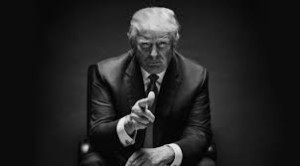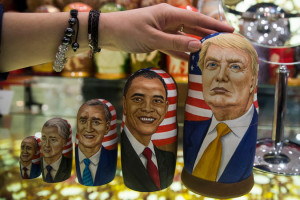9 November 2016 – Yesterday was no surprise. As I have said in numerous posts, America has laid waste to its principles of democracy as chronicled by event after event after event in its history. And it seems the experts underestimated how many old white guys can still manage to find their way to the polls.
And the death of the GOP? A little premature. The anti-establishment and anti-globalization winds have been blowing for years now. The Democratic Party has paid the severe price for ignoring it.
Yes, there is obviously a huge disconnect between different parts of the country – it is a gap of race, of class, of opportunity and of power. But the dizzying shift last night – when Hillary Clinton was so heavily favored – hints that the gap is not merely demographic, but informational.
Trump, the eternal salesman, promised the world to the disaffected whites who lost their jobs to the global economy. He mocked the concerns of women and minorities and echoed the worst tendencies of his supporters in expressing that his political opponents were fair targets for hatred and even violence. That issues of racial, sexual and economic equality were invented by “losers” wanting to keep down the “winners” who supported him.
And yes, yes. I get it. There are just as many people who are thrilled by last night’s election as there are people who are devastated by it. For every single American who voted for Hillary yesterday and who watched last night’s events unfold in horror, there’s another American out there who rejoiced. It’s a 1-to-1 ratio.
But for me this was a triumph for nativism, authoritarianism, misogyny, and racism. A triumph by someone who did little to spurn endorsement by forces of xenophobia and white supremacy. David Remnick:
It is impossible to react to this moment with anything less than revulsion and profound anxiety.
There are, inevitably, miseries to come: an increasingly reactionary Supreme Court; an emboldened right-wing Congress; a President whose disdain for women and minorities, civil liberties and scientific fact, to say nothing of simple decency, has been repeatedly demonstrated.
Trump is vulgarity unbounded. As David Remnick Tweeted last night:
“Trump seemed like a twisted caricature of every rotten reflex of the radical right”
Does Trump have the ability, character or vision to lead his people to the Promised Land? Did Stalin, or Hitler, or Mao? How many strongmen, brought to power on a promise to “restore their country to greatness”, had a plan for doing so that didn’t lead over the backs of millions of those unfortunate enough to be labeled as dissidents in their eyes? Who can stop a Republican House, Senate, Executive and Judicial branch?
One friend noted “hey, one man, armed with only his ego and his mouth, wins with the entire system against him. There’s something wrong with you if you can’t appreciate the beauty of that.”
No, dude. His ego, his mouth, millions of dollars, a disenfranchised angry and easily manipulated electorate, a terrible opposition, the Kremlin, and the sudden inversion of white to black and up to down. If you aren’t terrified right now, you’re probably not female, an immigrant, Muslim, Mexican, a POC, gay, trans … or marginalized at all. There is no beauty in that.
One thing to remember: Trump stands for nothing but Trump. His fans will learn that soon. I think Trump wants to BE president but not DO the job of president. Me thinks Pence will be doing all the heavy lifting. And given the people he has surrounded himself with … such as Roger Ailes, Stephen Bannon, Ann Coulter, Chris Christie, Newt Gingrich, Rudy Giuliani, Jeff Sessions … one can surmise the level of outrageous acts to follow. As Sam Lessin noted this morning:
Given how this campaign was run … and that’s the easy part, not the harder stuff, governance … I have no reason to believe that Trump and his band have any need or mood to govern within the traditional boundaries of decency.
Silver lining? Litigation attorneys I have spoken with and emailed today are licking their chops. They all anticipate a tsunami of legal work coming out of Trump administration actions … plaintiff and defense.
In the coming days, commentators will attempt to normalize this event. They will try to soothe their readers and viewers with thoughts about the “innate wisdom” and “essential decency” of the American people. They will downplay the virulence of the nationalism displayed.
I am writing a much longer post-election piece for my French, German and Italian media outlets and I will have a longer comment. And I want to revisit the falsity of technology, all that dazzling tech, big data and the sophisticated AI employed this year … especially in faux journalism. As Jim Ruttenberg noted on Twitter:
Wow. Did we just see “Dewey Defeats Truman” for the digital age?
The public discussion about technology’s impact on the election has mostly centered on the direct-to-consumer populism of Donald Trump on social media, but this goes way beyond Twitter and Facebook. The real story is about what it means to operate a “democracy” in a world of perfect memory and free communication.
So to finish up, just a few things I learned this election cycle.
I live in Europe, with some limited trips back to the U.S. But I see and feel the the effect of U.S. decisions and policy on matters that affect Europe and the Middle East. Post-war solidarity in Europe is fraying under the weight of a migration crisis combined with financial resentment combined with a return to nationalism. The Middle East has been given over to Russia, Saudi Arabia, Turkey and Iran.
The U.S. focus, understandably, is that red and blue electoral map and the underlying/internal U.S. issues. The effect of recent history and the rise of asymmetrical dangers of terrorist attack have made the American public loose much of its appetite for global engagement – military, political, and cultural. Trump shares those views. So let me unpack a few points.
Today I had lunch with some of my European security chums (a pre-planned monthly event coming out of my attendance at the Munich Security Conference. There was some dark humor like “Putin has announced his first summit with President Trump will take place in the Russian city of Kiev”. Lunch was a somber affair.
As several chums noted, a look at the first world leaders who congratulated Trump reveals “an uncomfortable theme”. They were pretty much all strongmen: Egypt’s President Abdel el-Sisi, Turkish President Recep Tayyip Erdogan, and Vladimir Putin.
Most of the EU’s leaders sent congrats with Italy’s Premier Matteo Renzi offering his congratulations to Trump but brushing aside political differences following his repeated public endorsements of Hillary Clinton.
But the elephant in the room (sorry for the attempted pun) is Vladimir Putin who must be popping open the Shampanskoye. We discussed Trump’s long skepticism about NATO, first noted, I am told, in his 2000 book “The America we Deserve”where he advocated allowing East Europeans to “settle their age-old conflicts without American intervention”. That view may have been prompted by the war in ex-Yugoslavia. These days, Europe’s security worries focus on the threat from Vladimir Putin’s Russia.
And, of course, I am reminded of Trump’s campaign statement that the United States would defend only NATO allies that paid their full share of the defense burden. Newt Gingrich … mentioned as Trump’s likely Secretary of State … went even further, saying that he doubted America should defend Estonia from Russian attack, because the small Baltic nation was in the “suburbs of St Petersburg.” NOTE TO THE GOOD PROFESSOR: Estonia’s border is actually a good 50 miles from that Russian city and Estonia is also one of the handful of American allies which does meet NATO’s target of spending 2% of GDP on defense. (Thanks to Edward Luce for that information).
The key issue is: will a Trump presidency shake to its foundations a US commitment to European security that dates back to 1941? Europe still depends on the United States for the bulk of NATO’s military muscle (especially nuclear weapons, heavy armor, air power and logistics) and for intelligence collection and diplomatic heft. Europeans are now scrambling to fill that gap (over the past year there has been hand wringing it was not done sooner). During the Munich Security Conference this year it was noted by several senior US officials that the EU has been warned “for years” of the consequences of spending too little on defense.
And now Putin has received the biggest gift he could have imagined. His big goal has always been to rewrite the rules on which European security is based. From a Western point of view, those post-Cold War security decisions were “set in stone” and unquestionably good. But from the Kremlin’s point of view, that security order was intolerable. The rules of the game were written when Russia was weak, following the Soviet collapse.
Putin has long sought to be a “game changer”. He tested Western resolve with a cyber attack on Estonia in 2007 (and there still is an ongoing cyber war against all the Baltic States), with the war in Georgia in 2008, and with the annexation of Crimea from Ukraine in 2014. It stoked division and mistrust in the Atlantic alliance — not least through his sponsoring Edward Snowden — and within Western countries (notably in the U.S. election campaign).
This is, essentially, how Russia sees the past 25 years of history: a quarter of a century of national humiliation and decline that Putin has determined to halt, if not reverse. There was a great interview on the BBC this fall with General Evgeny Buzhinsky, a retired military officer now with the PIR Center, a leading Russian security think tank. A clip:
“From the very beginning, the United States played the winner, and did so for too long. If Russia says it is not happy with NATO expansion, or we are not happy with missile defense, that is true. But when the West says we have our plans, we will just carry on, that is not the way Russia can be talked to.
Faced with the prospect of yet another former Soviet state turning West, Russia moved to protect its strategic naval base in Crimea, annexing the entire Black Sea peninsula. In Syria, Russia saw a last toehold of Kremlin influence threatened in the Middle East and moved to ensure its long-time government ally did not fall. We shall exert our rights.”
Even recent hack attacks on U.S. political institutions, blamed by U.S. officials on Moscow, can be seen through the prism of a Russia determined to make its influence felt once again. All are part of a broader Russian struggle to redefine its global role.
Russia has met little penalty for breaking those rules. And now, a gift: a U.S. president who does not believe in them either. Game and set to Putin. The match is in his grasp, too. Because he fears no possible US military intervention.
BANG! Americans chose a president who promised to reverse the internationalism practiced by predecessors of both parties and to build walls both physical and metaphorical. The outsider revolution that propelled him to power is not unlike this year’s events like Brexit. To my mind, Trump’s success could highten the same populist, nativist, nationalist, closed-border movements evident across Europe.

